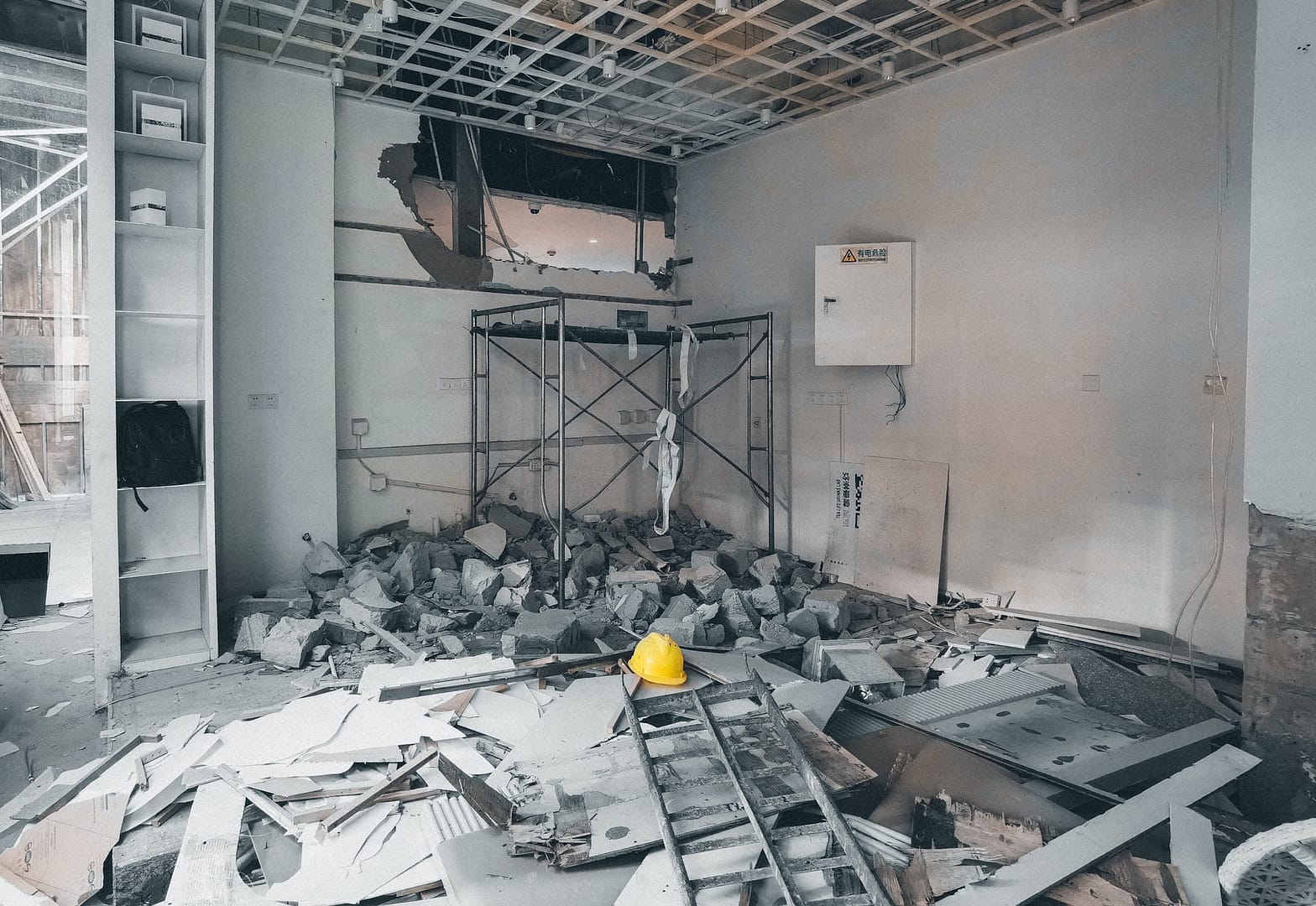Commercial Demolition Types
Introduction
When one thinks of demolition, the immediate image might be of massive wrecking balls and buildings crumbling down. But, in reality, commercial demolition types are varied and more intricate than that. Commercial demolition is not just about tearing down; it’s about setting the stage for future innovations and progress.
Commercial Demolition Types in Today’s World
1. Interior Selective Demolition
Interior demolition, one of the most common commercial demolition types, is more nuanced than one might think. This type of demolition is largely about maintaining the overall skeleton or structure of a building while making changes within. Think of an interior demo as an artist preparing a canvas. The artistry in this interior demo type lies in selectively taking parts apart, ensuring safety, and preparing the space for a fresh start.
Whether it’s renovating an old office space, redesigning a retail store, or making alterations to any commercial space, interior selective demolition is often the go-to method. It’s a delicate dance of ensuring the building’s integrity while removing walls, ceilings, or fixtures – a process that is often likened to surgery for its precision. Interior wall demolition, a subset of this, is especially crucial when aiming to open up spaces and create a more fluid environment.
2. Structural Demolition
Unlike the more selective interior commercial demolition types, structural demolition involves a complete overhaul. It’s about starting from scratch. Such demolitions are undertaken when the entire building needs to be removed, either due to structural concerns or to pave the way for a completely new construction. When we dive into the world of structural demolition, thoroughness is the key. There should be no debris left behind, and the site should be prepared adequately for whatever comes next.
3. Deconstruction
Deconstruction stands apart from other commercial demolition types. Instead of just tearing down, this process involves an organized breakdown of a building. Materials are categorized and often repurposed or recycled. With increasing concerns about sustainability and reducing waste, deconstruction is rapidly gaining traction in the commercial demolition sector.
What Should I Know Before Hiring a Commercial Demolition Company in Halifax?
Before entrusting a company with your commercial demolition project in Halifax, there are several key factors to consider.
Licenses and Permits: The company should have all necessary licenses to operate in Halifax and be well-versed in acquiring the required permits for the demolition job.
Safety Protocols: Prioritize companies that emphasize safety. Check if they adhere to all safety regulations and guidelines. An established company should also have comprehensive insurance coverage, protecting you from potential liabilities.
Conclusion
Whether you’re considering interior demo types like interior wall demolition or looking at a complete structural overhaul, understanding the nuances of each method is crucial. Commercial demolition types are varied, and each has its specific purpose and methodology. Ensuring you choose the right method can make all the difference in safety, efficiency, and the final outcome.
When it comes to Commercial Demolition Types, the precision of seasoned professionals can make all the difference. If you’re planning a renovation or complete demolition, don’t leave it to chance. Contact Cross Brothers Demolition & More today.
Reach out to us at 902-403-5811.
FAQs
What is commercial demolition?
Commercial demolition refers to the systematic tearing down of commercial structures, such as office buildings, shopping centres, warehouses, or factories. Unlike residential demolition, which targets homes and small structures, commercial demolition typically deals with larger and often more complex structures. The goal is either to clear a site for new construction or to renovate an existing structure to meet new requirements.
What are the 3 commercial demolition types?
The three primary commercial demolition types are:
Interior Selective Demolition: This type involves carefully removing select interior components of a structure while preserving the building’s exterior and main support system. It’s commonly used in renovation projects where only certain parts of a building need alteration.
Structural Demolition: This involves the complete tearing down of a structure. The process may use heavy machinery like bulldozers, wrecking balls, or explosives, especially for larger structures.
Deconstruction: Unlike traditional commercial demolition types, deconstruction is a more meticulous process where a building is taken apart piece by piece, aiming to salvage as many materials as possible for reuse or recycling.
How to do Commercial interior demolition?
When undertaking interior demolition, it’s vital to first obtain the necessary permits and identify any potential hazards. Prioritize safety by cutting off utilities and wearing appropriate protective gear. Clear the area of furnishings and fixtures to provide a clean workspace. Start your demolition with non-structural elements, such as drywall and flooring. If you encounter structural components, it’s crucial to seek expert advice before proceeding. DIY tasks can be challenging and dangerous, so if you need professional guidance or assistance, especially in the Halifax area, Cross Brothers is ready to help.
How long does it take to demo a room?
The time for room demolition varies based on size and complexity. A small, basic room might take a few hours, while a larger, detailed room could take several days. Additional safety procedures, like asbestos removal, can extend the timeline. Always consult a professional for specifics.
Should You Work With an Interior Demolition Contractor?
Yes, working with a professional interior demolition contractor offers several advantages:
Safety: Contractors ensure safe demolition, reducing potential hazards.
Efficiency: They use specialized tools for quicker and cleaner work.
Regulation Adherence: Contractors are familiar with Commercial Demolition Types regulations, ensuring compliance.
Waste Management: They properly dispose of or recycle debris
Cost-Effective: Hiring a professional can prevent costly DIY mistakes.

